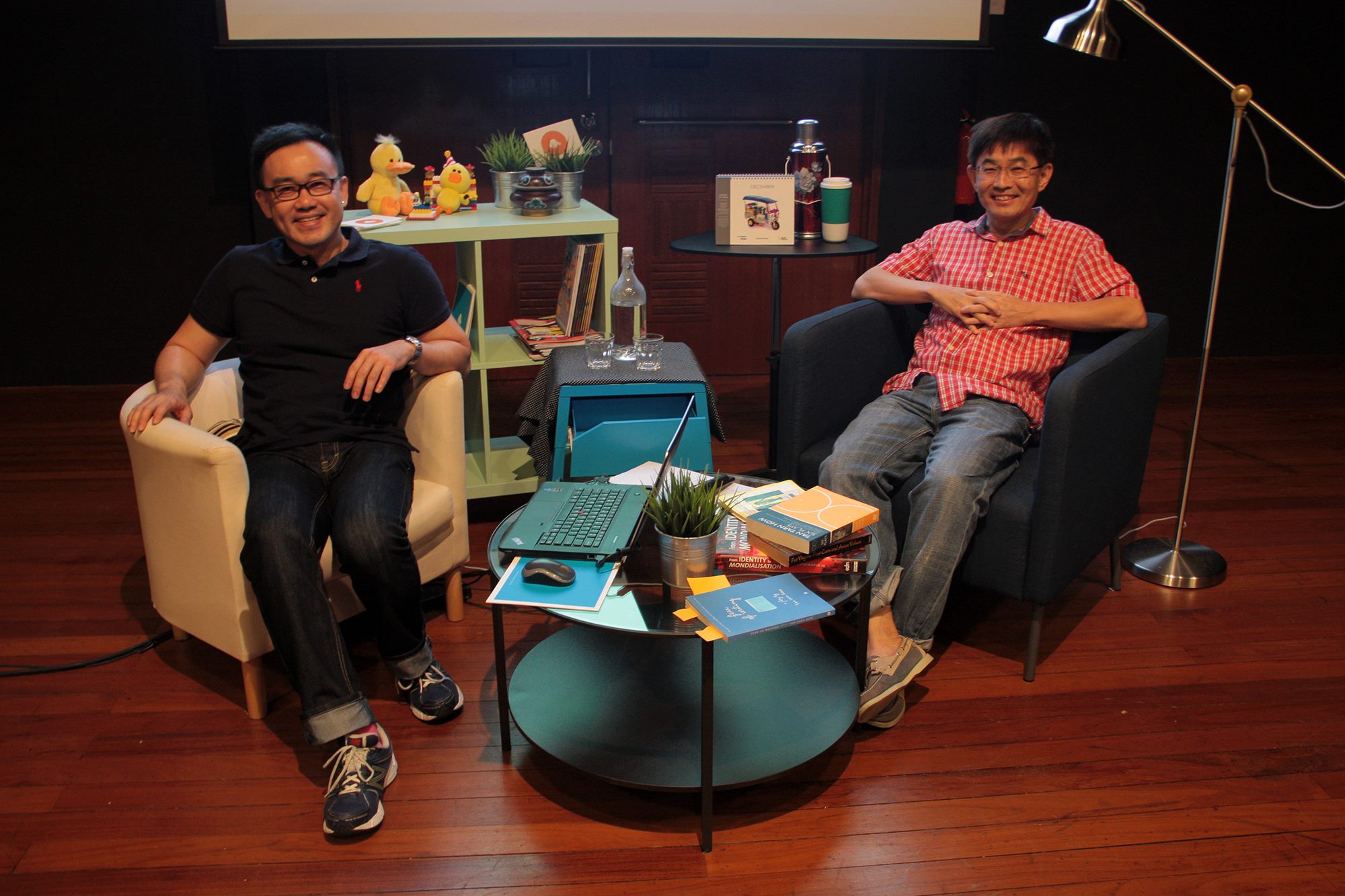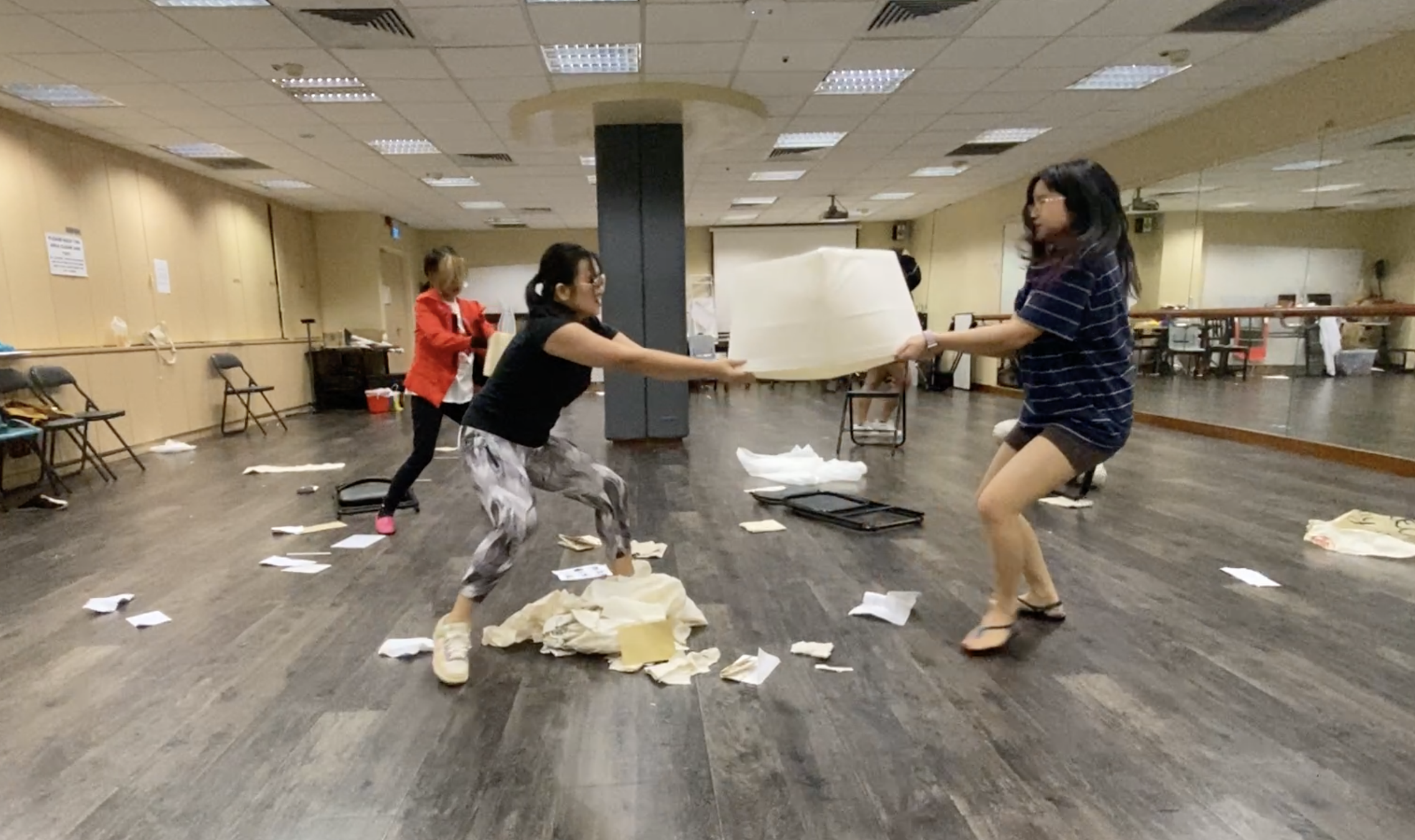Robin Loon (left) and Tan Tarn How (right) at Centre 42’s In The Living Room with Tan Tarn How

In the programme booklet for the 1993 production of The Lady of Soul and Her Ultimate ‘S’ Machine, Tan Tarn How writes:
Firstly, it seems to me that any work which attacks censorship, as this play does in some parts, has a paradoxical existence. If the work is banned, then the attack is justified. But if it is passed, the attack loses validity. Since this play has been allowed through clean, does it then mean that its staging subverts one of the reasons for its existence?
- Tan Tarn How
In The Lady of Soul, Derek, a civil servant, drafts two reports, the first one of which “contains what the Minister wants to read” and has “everything that is expected of [Derek]”, while the second contains everything that Derek himself considers right. Paul, Derek’s friend, bluntly advises Derek to chuck the second report in the waste paper basket. Ultimately, despite Derek’s best efforts, the second report is censored and the findings of the first report is accepted.
This theme of censorship is one that Tan echoes throughout his body of work; the red pen of the censors fighting against the blue pen of the playwright. Tan presents this argument again in his next play Undercover, where the playwright director, Qiang, talks about the inherent paradox in performing a play about dissent in a country that does not tolerate dissent. In The First Emperor’s Last Days, the team tasked to write the biography of the First Emperor grapples with which of the hard truths and white lies they can publish. Even in his more recent works such as Fear of Writing (2011) and Press Gang (2018), Tan continues to explore what is said, what is censored, and who has the final say.

Photograph of the devising process of S.O.S.
In S.O.S., students from TS3103 Theatre Lab module pose the paradox of censorship with a new twist: what is included or excluded from the data that is provided to an artificial intelligence program to be trained on? Who determines what is included or excluded? More importantly, who determines what the final output from this artificial intelligence would look like? While the power of censorship seems to be slowly pried away from the state and into the hands of technology, what are the consequences of doing so?
With these questions in mind, the paradox of censorship that Tan posed thirty years ago with the production of The Lady of Soul and Her Ultimate ‘S’ Machine remains increasingly relevant.